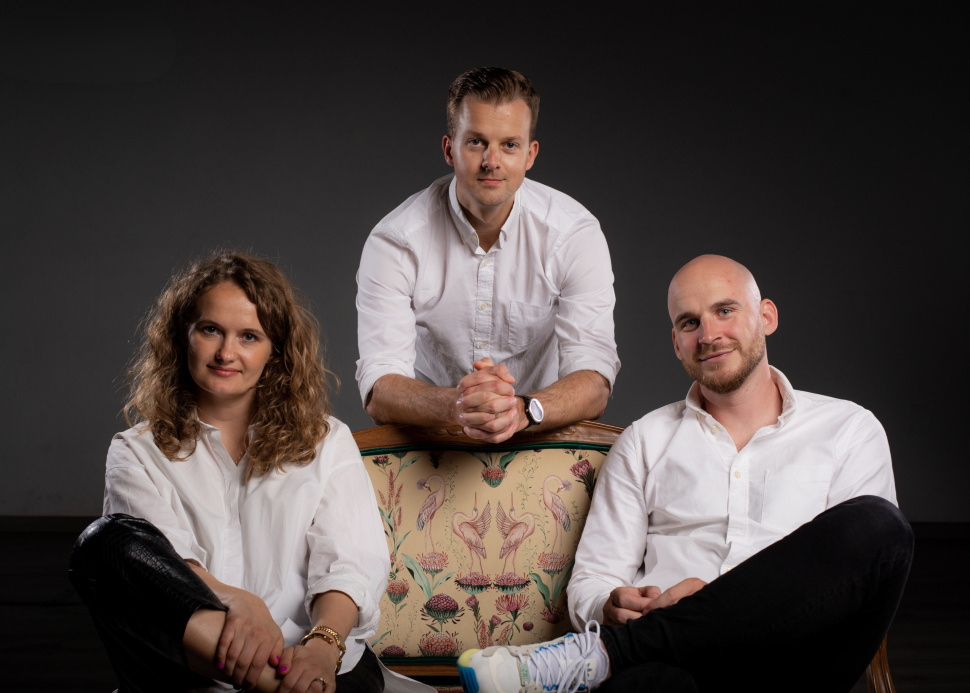My Big Idea: AI memory and learning platform Recallify
.jpg)
Hi Sarah! What’s your elevator pitch?
Recallify is an AI-powered memory & learning companion for people whose lives are affected by cognitive change, due to brain injury, neurodiversity or specific learning differences. Recallify captures conversations and events, instantly creates transcripts, and summaries, gives you personalised cognitive support (e.g. recall quizzes and smart reminders), and stores everything on your memory timeline. Built by me, a clinician with 15 years of NHS experience, it's grounded in research and clinical evidence. Recallify aims to bring rehabilitation strategies out of the clinic and into everyday life.
Why does the market need it?
More than three billion people worldwide live with a neurological condition, and around 15 % of the population is neurodiverse. In the UK alone, 1.3 million people are living with the effects of acquired brain injury. Paper diaries, dictaphones and generic note apps simply record information but they can't help the brain relearn how to recall or organise it. Meanwhile, numerous apps are available that lack clinical validation. Recallify weaves proven clinical techniques, spaced repetition and active recall, into an everyday smartphone experience, bridging the gap between specialist therapy and real-world living.
Where is the business today?
We launched on iOS and Android in February 2025, following the pilot of an MVP with hundreds of people living with neurological or neurodevelopmental conditions. Six months on we have about 800 monthly users—won entirely through word of mouth—and we change the app based on continued user feedback. Recallify won UKABIF’s 2024 Mark Barnes Award for Innovation and is currently supported by Headway, Tom’s Trust and the UK Acquired Brain Injury Forum.
What made you think there was money in this?
During fifteen years of clinical practice within NHS neuropsychology services, I became increasingly frustrated by the limited technological tools available to my patients. The idea for Recallify came to me when a teenage stroke survivor with profound amnesia said, “I wish I could live every day over and over until I can remember it.” I recognised that a smartphone app, powered by artificial intelligence, could fulfil that wish.
What’s your biggest strength?
I am dyslexic. Before, I perceived this as a limitation: it takes me longer to write, I commit occasional grammatical errors, and my verbal short-term memory isn’t great. Consequently, I have myself have used strategies myself while completing my clinical training. This lived experience enables me to empathise with my patients and drives my commitment to technology that genuinely assists them. Two years ago, I recognised that artificial intelligence could help many of my own challenges; I now leverage such tools daily to refine my writing and speed me up.
What’s the secret to making the business work?
Trust. Users record highly personal material with Recallify, their conversations, doctor appointments, meetings - anything they want to remember and have access to in the future, so privacy is paramount. Wherever technically feasible, data is processed on-device, all content is encrypted end-to-end, and no user data is shared with third parties under any circumstances. We cannot see what users upload to Recallify - it's completely private.
How do you market the company?
So far, we have not spent any money on marketing. We have spoken at neuropsychology and neurology conferences, which has created clinician interest who then introduce Recallify to patients. Success stories spread organically through partner charities and patient support groups who have recommended it to each other, allowing us to grow without a formal marketing budget.
What funding do you have? Is it enough?
We bootstrapped the prototype and later raised a small initial pre-seed from Bethnal Green Ventures. We completed their accelerator in May 2025. A larger pre-seed round opens early next year to expand the team. Recallify has been running on a freemium-tiered model on the App Store and Playstore. We are also actively working on rolling out B2B2C licences for clinics, hospitals, and charities. Our aim is for Recallify to be affordable and accessible to the people who need it most.
What were you doing before?
I spent 15 years as a senior clinical psychologist in paediatric neuropsychology at different NHS trusts in London, including GOSH, Evelina Children’s Hospital and now Kings College Hospital and private practice. As part of my training to be a neuropsychologist, I have completed an MSc, a PhD in Neuroscience and a Doctorate in Clinical Psychology. I was keen to translate all that training and learning into improved patient outcomes and innovation.
Berkan is my co-founder and husband. He is an AI specialist who has spent the past 15 years building products and businesses powered by AI across healthcare research and finance.
What is the future vision?
Within five years, we want Recallify to be the digital cognitive companion prescribed by every NHS neuropsychology and community rehabilitation team. The same technology can also support students in classrooms and professionals at work, capturing discussions, generating action points and reinforcing learning automatically. Our goal is straightforward: to make sure that people have access to their memories whenever they need them.
(1).jpg)

.jpeg)